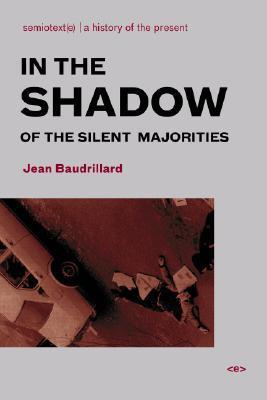What do you think?
Rate this book


136 pages, Paperback
First published June 1, 1983
This comforts [power] in its illusion of being power, and leads away from the much more dangerous fact that this indifference of the masses is their true, their only practice, that there is no other ideal of them to imagine, nothing in this to deplore, but everything to analyse as the brute fact of a collective retaliation and of a refusal to participate in the recommended ideals, however enlightened. [...] Bombarded with stimuli, messages and tests, the masses are simply an opaque, blind stratum, like those clusters of stellar gas known only through analysis of their light spectrum—radiation spectrum equivalent to statistics and surveys—but precisely: it can no longer be a question of expression or representation, but only of the simulation of an ever inexpressible and unexpressed social. This is the meaning of their silence. But this silence is paradoxical—it isn't a silence which does not speak, it is a silence which refuses to be spoken for in its name . And in this sense, far from being a form of alienation, it is an absolute weapon. [...] The mass absorbs all the social energy, but no longer refracts it. It absorbs every sign and every meaning, but no longer reflects them. [...] For every question put to it, it sends back a tautological and circular response. It never participates.